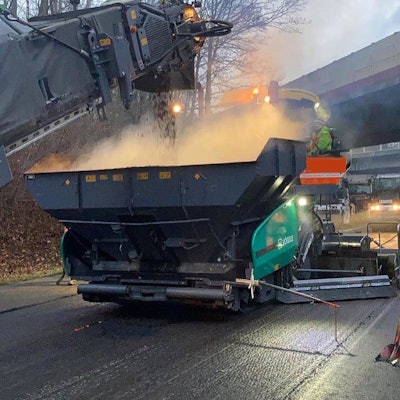
President Joe Biden has signed an executive order requiring that all projects funded by the Bipartisan Infrastructure Law (BIL) use project labor agreements. The executive order would require contractors on federally funded construction projects costing more than $35 million to agree to work with at least one union. The order aims to improve quality and lower costs on federal construction projects, according to the White House.
"Large-scale construction projects pose special challenges to efficient and timely procurement by the Federal Government. Construction employers typically do not have a permanent workforce, which makes it difficult to predict labor costs when bidding on contracts and to ensure a steady supply of labor on contracts being performed," the order states. "A lack of coordination among various employers, or uncertainty about the terms and conditions of employment of various groups of workers, can create friction and disputes in the absence of an agreed-upon resolution mechanism. These problems threaten the efficient and timely completion of construction projects undertaken by Federal contractors. On large-scale projects, which are generally more complex and of longer duration, these problems tend to be more pronounced. Project labor agreements are often effective in preventing these problems from developing because they provide structure and stability to large-scale construction projects."
The executive order stands to affect $262 billion in federal contracting funds and nearly 200,000 workers on federal contracts, according to the administration's analysis of fiscal 2021 spending.
Training a Priority
According to The Hill, the executive order also directs the Department of Labor and White House Office of Management and Budget to develop a training program on the new policy for about 40,000 contract workers.
"The executive order... is going to help ensure that we build a better America, we build it right, and we build it on time, and we build it cheaper than it would have been otherwise," Biden said.
Biden had promised that the bipartisan infrastructure law he signed in November 2021 would create union jobs. The $1.2 trillion Infrastructure Investment and Jobs Act released funds to improve the nation's roads, bridges, broadband access and utilities. Key changes in the act for employers include an end to the Employee Retention Tax Credit and the creation of workplace development grant programs and industry-specific advisory boards.
Hesitancy Surrounding Order
While the order is aimed at improving conditions for workers and alleviating delays and cost overruns, several business groups raised concerns about the costs and other constraints associated with the plan. With the order, federal construction projects could scare away contractors unfamiliar with union requirements, potentially limiting competition and cutting against the administration's goal of reducing project costs.
"Government-mandated project labor agreements undermine the collective bargaining process by imposing a separate agreement in a specific region that applies only to a limited number of construction firms and unions," according to a statement from the Associated General Contractors of America.
Ben Brubeck, vice president of regulatory, labor and state affairs for Associated Builders and Contractors, said, “President Biden’s new policy will not help America ‘Build Back Better;’ instead, it will exacerbate the construction industry’s skilled workforce shortage, needlessly increase construction costs and reduce opportunities for local contractors and skilled tradespeople. This anti-competitive and costly executive order rewards well-connected special interests at the expense of hardworking taxpayers and small businesses who benefit from fair and open competition on taxpayer-funded construction projects.
Research has demonstrated that government-mandated PLAs increase construction costs by 12% to 20%, which results in fewer construction projects and improvements to roads, bridges, utilities, schools, affordable housing and clean energy projects—and the creation of fewer jobs. Brubeck also went on to say that PLA mandates are bad public policy because they effectively exclude the nearly 9 out of 10 U.S. construction workers who choose not to join a union from building taxpayer-funded construction projects, creating excessive cost burdens and risks for high-performing nonunion contractors.
Despite Biden’s backing, and polls showing widespread public support for unions, the rate of union membership nationwide remains stuck at slim 10 percent, its lowest in decades.
The Protecting the Right to Organize Act, or PRO Act, which Biden also supports, would make it easier to unionize by preventing companies from holding mandatory anti-union meetings and imposing financial penalties on employers that retaliate against workers seeking to unionize. It passed the House last March but remains a long shot in the Senate. Democrats may seek to pass some of its provisions along party lines this year.




















